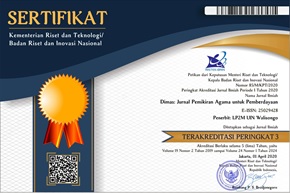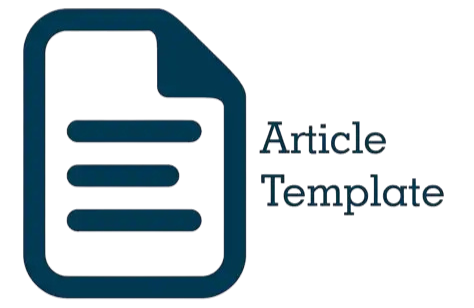Optimalisasi Pengelolaan Zakat Produktif dalam Pemberdayaan Masyarakat Berbasis Komunitas pada Pimpinan Daerah ‘Aisyiyah Kabupaten Banyumas
DOI:
https://doi.org/10.21580/dms.2020.201.5439Keywords:
Zakat Produktif, Pemberdayaan Masyarakat, KomunitasAbstract
Zakat as a Muslim's obligation does not only contain a spiritual province, but also contains a social dimension. To create a more systemic social dimension, zakat must be managed and distributed in various productive programs.The purpose of the community service activities that have been carried out is to provide motivation and encouragement as well as a comprehensive insight into the law and wisdom of zakat along with the management of zakat productively, so that the expectation is to be integrated into the zakat recipient community. The method used is to provide a comprehensive understanding and insight on the management of productive zakat, both in legal and wisdom perspective up to the management of productive zakat management in the form of training. In this training the participants in this training were delegates from the Head of Aisyiyah Branch of Banyumas Regency and the management of the Center of Aisyiyah Regional Leadership of Banyumas Regency. In the activity two materials were delivered by the implementing team namely funding the law and the wisdom of zakat and optimizing the management of productive zakat. Delivering material using dialogue participatory, where participants can present their ideas and views, so that the speaker is only a facilitator. While the practice is directed towards the calculation of zakat assets and the rest is related to development materials. Participants responded very well to the process of implementing community service and hoped to be carried out in a sustainable manner, this was due to the addition of understanding and actions to optimize the management of zakat which was marked by zakat through official institutions.
Zakat sebagai kewajiban seorang Muslim tidak hanya mengandung diminsi spiritual, tetapi juga mengandung dimensi sosial. Untuk menciptakan dimensi sosial yang lebih sistemik, maka zakat harus dikelola dan disalurkan dalam berbagai program yang produktif. Tujuan dari kegiatan pengabdian masyarakat yang telah laksanakan ini adalah memberikan motivasi dan dorongan serta wawasan yang komprehensif mengenai hukum dan hikmah zakat berserta pengelolaan zakat secara produktif, sehingga harapannya terjalin integrasi program dengan komunitas penerima zakat. Metode yang digunakan adalah dengan cara memberikan pemahaman dan wawasan komprehensif mengenai pengelolaan zakat produktif, baik dalam perspektif hukum dan hikmahnya sampai dengan manajemen pengelolaan zakat produktif dalam bentuk pelatihan. Dalam pelatihan ini para peserta dalam pelatihan ini merupakan delegasi dari Pimpinan Cabang Aisyiyah se-Kabupaten Banyumas dan pengurus Muallaf Center Pimpinan Daerah Aisyiyah Kabupaten Banyumas. Dalam kegiatan disampaikan dua materi oleh tim pelaksana yakni menganai hukum dan hikmah zakat dan optimalisasi pengelolaan zakat produktif. Penyampaikan materi dengan menggunakan parsipatori-dialogis, dimana para peserta dapat menyampaikan gagasan dan pandangannya, sehingga pemateri hanya menjadi fasilitator. Sementara untuk praktik diarahkan berkaitan dengan penghitungan zakat harta dan selebih berkaitan dengan materi pengembangan. Respon peserta sangat baik terhadap proses pelaksanaan pengabdian masyarakat dan berharap agar dilakukan secara berkesimbungan, hal tersebut dikarenakan adanya penambahan pemahaman dan tindakan untuk memasimalkan pengelolaan zakat yang ditandai dengan berzakat melalui lembaga resmi.
Downloads
References
Efendi, Mansur. 2017. “Pengelolaan Zakat Produktif Berwawasan Kewirausahaan Sosial Dalam Mengentaskan Kemiskinan Di Indonesia.” Ilmu Syari’ah Dan Hukum.
Forum Zakat. 2012. Cetak Biru Pengembangan Zakat Indonesia 2011-2025 Panduan Masa Depan Zakat Indonesia. Jakarta: Forum Zakat (FOZ).
Haryono, Dedi, Darsono Wisadirana, and Anif Fatma Chawa. 2018. “Strategi Pemberdayaan Komunitas Perempuan Miskin Berbasis Agribisnis.” Dimas: Jurnal Pemikiran Agama Untuk Pemberdayaan 18 (1): 1–18.
Makhrus. 2014. “Aktivisme Pemberdayaan Masyarakat Dan Institusionalisasi Filantropi Islam Di Indonesia.” ISLAMADINA.
———. 2018. Dinamika Dan Aktivisme Filantropi Islam Dalam Pemberdayaan Masyarakat. Yogyakarta: Litera.
Makhrus, M. 2019. “Pengelolaan Zakat Produktif Dalam Upaya Pengentasan Kemiskinan Di Indonesia.” Jurnal Hukum Ekonomi Syariah 2 (1): 37–50. http://jurnalnasional.ump.ac.id/index.php/JHES/article/view/4458.
RI, Kementerian Agama. n.d. “Undang Undang Nomor 23 Tahun 2011 Tentang Pengelolaan Zakat.”
Ulum, Miftachul, Abdul Mun’im, Erly Juliyani, and Khoirun Nisa. 2019. “Penguatan Perekonomian Masyarakat Dalam Pemanfaatan ‘Tunteng’ Limbah Tambak Air Tawar Melalui Wirausaha Produksi Aneka Makanan Camilan.” Dimas: Jurnal Pemikiran Agama Untuk Pemberdayaan 19 (1): 1–14.
Downloads
Published
Issue
Section
License
Copyright
The copyright of the received article shall be assigned to the journal as the publisher of the journal. The intended copyright includes the right to publish the article in various forms (including reprints). The journal maintains the publishing rights to the published articles. Therefore, the author must submit a statement of the Copyright Transfer Agreement.*)
Licensing

This work is licensed under a Creative Commons Attribution-ShareAlike 4.0 International License.
In line with the license, authors are allowed to share and adapt the material. In addition, the material must be given appropriate credit, provided with a link to the license, and indicated if changes were made. If authors remix, transform or build upon the material, authors must distribute their contributions under the same license as the original.
_______
*) Authors whose articles are accepted for publication will receive confirmation via email and send a Copyright Transfer Agreement.









